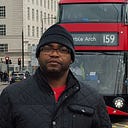Movie Review: Captain Marvel
You had to know it was eventually going to come. In response to strident calls for inclusiveness and diversity (i.e. more black actors in lead roles. Because in today’s world, the contemporary dictionary meaning of the word “diversity” is “black”) in Hollywood, MCU pandered to popular demand and gave us Black Panther.
Equally as strident in the wilderness of today’s political correctness is the call for more lead/hero roles for women in Hollywood. In response, Disney’s floundering DCEU may have been the first to heed the call with Wonder Woman but it is Marvel’s MCU that delivered a more definitive hoorah for girl power with the supernova of its 21st installment in its ever expanding cinematic universe.
Billed as an origin story for one touted as the most powerful super hero in MCU, Captain Marvel was also a bridge to convey the force of dazed but heightened expectations unleashed by the cinematic tour de force that was 2018’s Avengers: Infinity War as we coast home to the final denouement of a decade of cinematic story telling.
As an origin story, Captain Marvel employs a dialogue-heavy medium to traverse its titular character’s intergalactic journey to self-discovery. Starting from the opening sequence in Hala, the capital of the Kree planet, the amnesia-burdened recollections of Vers/Carol Danvers/ Captain Marvel (Brie Larson) set the tone for the movie’s story telling device of flashbacks and real time.
A rescue mission gone awry sees Vers crashing landing on earth circa 1995. She soon encounters computer de-aged Nick Fury (Samuel L. Jackson) and Agent Coulson (Clark Gregg) and joins forces with them in fending off some shape-shifting Skrulls whilst exploring the mysterious connection she perceives between her and planet earth.
Earth circa 1995 as depicted in the movie was shorn of the glitz and tech sophistry of today. The depiction of period authenticity seemed aptly captured by the general pictorial ambience of the movie which was shorn of vaseline-glazed cinematic surreality.
Where this absence of a vaseline-glazed surreality would have ordinarily detracted from the movie experience, the dialogue-heavy first hour coupled with the usual MCU tropes of smart quips and repartees combined to create an engaging cinematic experience made even more enjoyable as the storyline weaved itself seamlessly into the elaborate tapestry of MCU’s decade-long story arc.
The special effects were, perhaps deliberately, toned down and comparatively more crude than sophisticated to achieve period authenticity.
But tied in to the nostalgia of the 90s music soundtrack and the monuments of that decade (Blockbuster video, Smithsonian-grade computers, Budweiser neon lights and grunge-chick rider look), it aroused nostalgic memories of a decade that today comes across, comparatively, as more Flintstones than Jetsons.
As the titular character, Brie Larson gave a one-dimensional portrayal that, notwithstanding its lack of emotional depth, worked for the main part in portraying a believable female super hero.
As Nick Fury, the inimitable Samuel L. Jackson gave a refreshing previously unseen comic side of the ever-serious and unsmiling future SHIELD Director.
Aside those two, there was nothing noteworthy about the other performances in the movie. This is, perhaps, because the movie seemed hurried in telling its origin story and despite being dialogue-heavy in doing so, it relied less on performances than it did with dialogue.
Given its girl power tonality and the unapologetic feminist stance of lead actress, Larson, heading into its release date, Captain Marvel was assailed by a vicious testosterone-fueled barrage of negative reviews targeted at ensuring its failure at the box office.
Its enormous success at the box office notwithstanding, the true victory for Captain Marvel is the fact that it is a truly enjoyable movie. It succeeds both as a stand-alone movie and space filler heading towards the release of Avengers: Endgame.
Perhaps, it was unintended but the revelation at the end of the movie that the “Avengers” name was inspired by Carol Danvers’ Air Force call name “Avenger” is a fitting middle finger to cinematic patriarchy and fanboy misogyny. As it is; Carol Danvers/Captain Marvel and not Steve Rogers/Captain America is actually the first Avenger. 7.5/10
